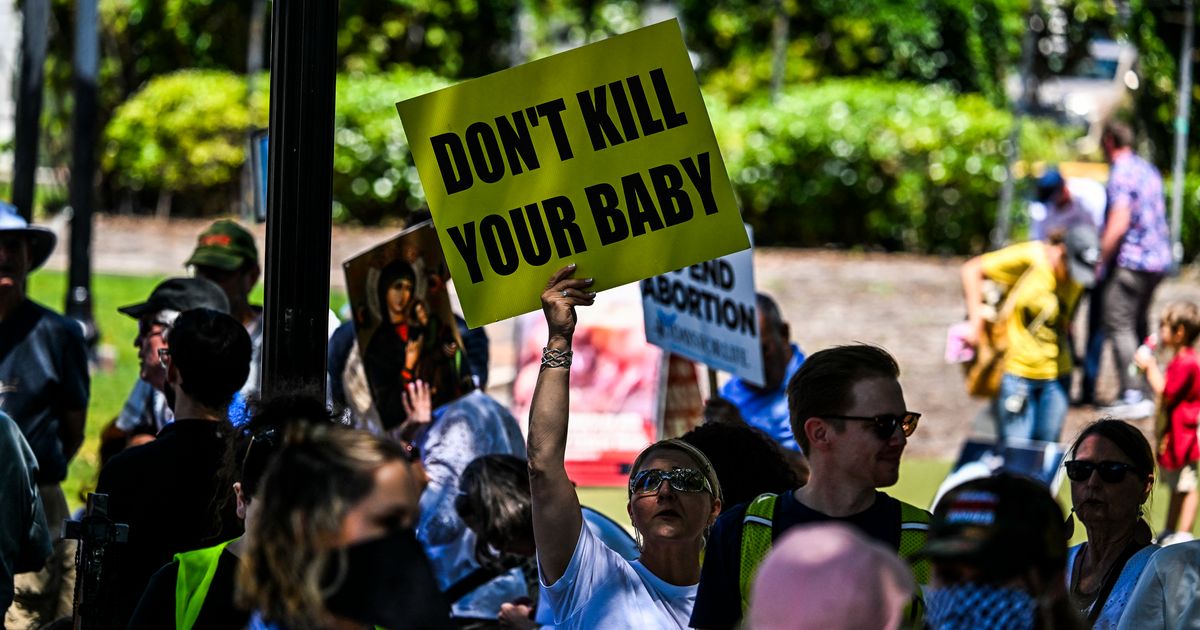Why Abortion Rights May Face New Setbacks in November

29/04/2024 22:38
A principal anti-abortion talking point in the 49 years during which the U.S. Supreme Court acknowledged a federal constitutional right to choose was that "the people," not unelected judges, should determine abortion policy. Now that the Supreme Court has overturned Roe v. Wade, Republican-controlled state legislatures have raced to impose abortion restrictions, ranging from total bans to prohibitions on abortion after 15 weeks of pregnancy.
But wherever "the people" have actually been consulted, the pro-choice cause has won; voters recently backed abortion rights via ballot initiatives in Kansas, Kentucky, Michigan, California, Vermont, Montana, and Ohio. Recognizing this trend and the underlying pro-choice majority in much of the nation (including red states), reproductive-rights supporters are now seeking to enshrine the right to choose in state constitutions, overriding state legislative prerogatives. In this strategy, they are being eagerly backed by Democrats, who hope that pro-choice voters will turn out abundantly and also reward the party that is fighting abortion bans in the crucial 2024 general election.
Abortion rights ballot initiatives are already set to take place in three states this November: Florida, Maryland, and New York. Petitions are being gathered for pro-choice ballot measures in Arizona, Arkansas, Colorado, Missouri, Montana, Nebraska, Nevada, and South Dakota. That's potentially a lot of ballot tests overlaid with a high-stakes presidential election and many important down-ballot contests.
So, can we expect the pro-choice winning streak of 2022 and 2023 to continue? And if not, where and how will anti-abortion activists break it? Here are three factors that could turn the tide in the November elections.
Competing state ballot initiatives
While anti-abortion advocates have failed (notably in Kansas, Kentucky, and Montana) to pass their own ballot measures aimed at heading off any judicially imposed state constitutional protection for abortion rights, they are now considering a more devious and more promising strategy.
In Arizona, a political crisis over abortion policy erupted on April 9 when that state's supreme court ruled that a total ban on abortion enacted in 1864 was still the law of the land, notwithstanding a 15-week ban enacted just before the Supreme Court scrapped Roe. After repeated efforts, Democrats and a handful of Republicans succeeded in getting a bill repealing the 1864 law through the lower chamber of the state legislature, and parallel action by the Arizona senate is widely expected in the next few weeks, before the revival of the old law takes full effect. But the furor over the court's decision and the vacillation of Republicans on the subject has supercharged the drive for a pro-choice ballot initiative in November. One strategy Republicans are now contemplating involves legislative enactment of state constitutional amendments to put multiple measures on the November ballot, as CNN reported:
Arizona Republicans are weighing their options to defeat a potential abortion rights ballot initiative this fall, including offering measures of their own that could draw support away from efforts to enshrine access to the procedure in the state constitution, according to a draft proposal obtained by CNN.
Under the proposal, Republicans could introduce two ballot initiatives that would restrict abortion to either six weeks or the beginning of the 15th week of pregnancy.
Advanced under the guise of "letting the people decide," such alternative abortion bans might cut into support for the citizen-initiated measure restoring the right to pre-viability abortions enough to defeat it, or even lead to approval of a new, more restrictive amendment.
Republicans pushing super-majority requirements
One big state where anti-abortion activists have some grounds for optimism about a November ballot initiative is Florida, where constitutional amendments have to be ratified by a super-majority of 60 percent of voters. Two mid-April polls on the pending constitutional amendment restoring the Roe-era fetal-viability standard show it has either majority support (57 percent, per USA Today/Ipsos) or plurality support (42 percent, per Emerson). It's entirely possible that an April 2 Florida Supreme Court decision that put into effect a Republican-backed six-week ban will help build support for a ballot initiative overturning all of the legislature's restrictive handiwork. But super-majorities on ballot measures are rarely a slam dunk, and polls are showing that Florida's large and strategically situated Hispanic voting population is at best lukewarm toward abortion rights.
Republicans in other states have sought to create super-majority requirements to head off pro-choice constitutional amendment measures. The effort failed last year in Ohio, as a sneaky special election vote to raise the threshold to 60 percent did not disguise its purpose. But the gambit is under consideration again in Missouri, where Republicans may succeed in scheduling an August primary vote on a super-majority requirement that could make a pro-choice constitutional amendment likely to appear on the November general-election ballot more difficult to pass.
Divisions in the pro-choice movement
There are two deep-red states where opposition to likely ballot measures overturning draconian abortion laws could benefit from divisions in the pro-choice ranks. National abortion-rights groups are declining to support proposed constitutional amendments in Arkansas protecting abortions after 18 weeks of pregnancy, and in South Dakota protecting abortions after the first trimester (roughly 12 weeks after conception). As the Washington Post explains in discussing the Arkansas vote, this could affect the resources available for an uphill abortion-rights battle in such states:
Organizers say the lower threshold of 18 weeks, about a month earlier than the viability standard established under Roe, was necessary to improve their chances in November. But it has alienated the national abortion rights groups that have put millions into ballot initiatives elsewhere.
"The policy itself, we believe, is not strong enough and expansive enough to deliver the access it should," said Sarah Standiford, national campaigns director for Planned Parenthood Action Fund. Arkansas is not among the nine states where the organization is supporting ballot measure efforts or monitoring them for potential involvement.
This decision reflects a quieter but potentially significant split between abortion-rights advocates who frown upon (but generally do not oppose) simple restoration of the Roe viability standard, and those who believe popular misgivings about rare late-term abortions should be accommodated as a matter of political realism, especially in conservative states. Backers of the Arkansas and South Dakota measures argue that either would protect the vast majority of abortions now entirely banned in their states.
Perhaps the growing backlash to abortion restrictions will keep the pro-choice winning streak intact in November. But it won't be easy. And if Republicans succeed in retaking the White House and flipping the Senate in November, Election Day could represent a very dark moment for reproductive rights no matter how many state electorates carve out isolated protections for abortion.


